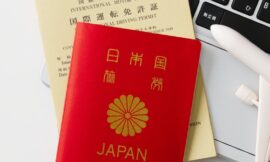Awesome 34 Common Japanese Phrases for Tourist
Learn some helpful common Japanese phrases for tourist to make your trip unforgettable. Show your appreciation by immersing into the Japanese culture through language. It goes a long way.
 |
| Common Japanese Phrases for Tourists |
Learning Japanese phrases as a tourist is essential for smooth and respectful travel. It helps bridge language barriers, allowing for basic communication in restaurants, transport, and shops. Simple greetings and polite expressions like “arigatou” (thank you) or “sumimasen” (excuse me) show cultural respect and often earn friendlier responses from locals.
In emergencies or unfamiliar situations, knowing key phrases can also be crucial for safety. While many Japanese people study English, fluency is not widespread, especially outside major cities. By learning a few phrases, tourists enhance their experience, demonstrate appreciation for the culture, and make their trip more enjoyable and stress-free.
Essential Japanese Phrases for Tourist: Easy Words & Travel Vocabulary with Translations
Traveling to Japan? Knowing even a few basic Japanese words can go a long way in helping you connect with locals, navigate public transport, and enjoy your trip more confidently.
Here’s a complete list of 34 easy Japanese phrases for tourists—perfect for shopping, eating out, asking for help, and saying thank you—with English translations, romaji (pronunciation), and Japanese spelling.
Why Learn Common Japanese Phrases for Tourist?
Even though many Japanese people speak some English (especially in cities), using simple Japanese travel phrases is polite, appreciated, and often improves the service or help you receive.
It’s also a great way to immerse yourself in Japanese culture and make your trip more meaningful.
Top Basic Common Japanese Phrases for Tourists
Greetings & Polite Expressions
English | Japanese (Spelling) | Romaji (Pronunciation) |
Hello / Good day | こんにちは | Konnichiwa |
Good morning | おはようございます | Ohayou gozaimasu |
Good evening | こんばんは | Konbanwa |
Goodbye | さようなら | Sayounara |
Thank you | ありがとう / ありがとうございます | Arigatou / Arigatou gozaimasu |
You’re welcome | どういたしまして | Dou itashimashite |
Excuse me / Sorry | すみません | Sumimasen |
Yes | はい | Hai |
No | いいえ | Iie |
Please | おねがいします | Onegaishimasu |
Asking for Directions or Help
English | Japanese (Spelling) | Romaji (Pronunciation) |
Where is [location]? | [場所] はどこですか? | [Basho] wa doko desu ka? |
Train station | 駅 | Eki |
Toilet / Bathroom | トイレ | Toire |
I’m lost | 道に迷いました | Michi ni mayoimashita |
Can you help me? | 手伝ってくれますか? | Tetsudatte kuremasu ka? |
At a Restaurant or Café
English | Japanese (Spelling) | Romaji (Pronunciation) |
Menu, please | メニューをください | Menyuu o kudasai |
Water, please | お水をください | Omizu o kudasai |
I’m vegetarian | 私はベジタリアンです | Watashi wa bejitarian desu |
Is this spicy? | これは辛いですか? | Kore wa karai desu ka? |
Check, please (bill) | お会計をお願いします | Okaikei o onegaishimasu |
Shopping & Markets
English | Japanese (Spelling) | Romaji (Pronunciation) |
How much is this? | これはいくらですか? | Kore wa ikura desu ka? |
It’s too expensive | 高すぎます | Takasugimasu |
Do you accept credit card? | クレジットカードは使えますか? | Kurejitto kaado wa tsukaemasu ka? |
I’ll take this | これをください | Kore o kudasai |
Tax-free? | 免税ですか? | Menzei desu ka? |
Public Transport & Hotels
English | Japanese (Spelling) | Romaji (Pronunciation) |
Which line is this? | これは何線ですか? | Kore wa nani-sen desu ka? |
Does this go to Tokyo? | これは東京に行きますか? | Kore wa Tokyo ni ikimasu ka? |
I have a reservation | 予約があります | Yoyaku ga arimasu |
Check-in / Check-out | チェックイン / チェックアウト | Chekku-in / Chekku-auto |
Luggage | 荷物 | Nimotsu |
Must-Know Emergency Phrases
English | Japanese (Spelling) | Romaji (Pronunciation) |
Help! | 助けて! | Tasukete! |
Call the police! | 警察を呼んでください! | Keisatsu o yonde kudasai! |
I don’t feel well | 気分が悪いです | Kibun ga warui desu |
I need a doctor | 医者が必要です | Isha ga hitsuyou desu |
Tips for Using Japanese as a Tourist
- Be polite: Add “お願いします (onegaishimasu)” or “ください (kudasai)” to soften requests.
- Body language matters: Bowing slightly shows respect.
- Speak slowly: Even a few words in Japanese go a long way.
- Use Google Translate: For signage or real-time conversation, it’s a life-saver
Final Advice: Even a few words in common Japanese phrases for tourist make interactions smoother and show respect for the culture.
Bookmark this guide, practice key phrases, and enjoy your trip to Japan!



